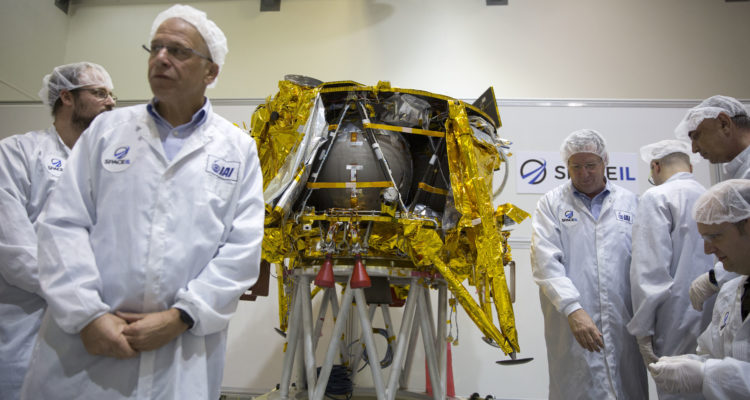The Jewish State would join the U.S., Russia, and China as the only countries to land a spacecraft on the moon.
By World Israel News Staff
Israeli nonprofit SpaceIL and Israel Aerospace Industries (IAI) say that Israel’s inaugural voyage to the moon – the world’s first privately funded lunar mission – will begin Thursday night at approximately 8:45 p.m., U.S. Eastern time, when the lunar lander “Beresheet” (“In the Beginning”) blasts off aboard a SpaceX Falcon 9 from Launch Complex 40 at Cape Canaveral Air Force Station in Florida.
Once Beresheet completes its lunar mission, Israel would join superpowers China, Russia, and the United States in landing a spacecraft on the moon. It will be the first such space capsule to land on the moon on a private initiative rather than on a government-funded enterprise.
About 30 minutes after liftoff, the spacecraft will disengage from the SpaceX Falcon 9 at around 60,000 kilometers above Earth’s surface, beginning, under its own power, a two-month voyage to the Moon’s surface. Two minutes after it separates from the rocket, Beresheet will communicate for the first time with the mission’s control center in Yehud, Israel.
Once ejected from its vehicle, the spacecraft robot will then use its British-built engine to propel itself to the moon.
The landing sequence is set to take around 15 minutes and will monitored by a joint group of scientists and engineers from the Israel Space Agency (ISA), the Weizmann Institute of Science, and NASA. Once it lands, the probe will conduct various experiments on the Moon’s surface, testing its magnetism and geology.
“For many months, our teams and IAI’s were engaged in testing the spacecraft and its systems, conducting complex experiments and preparing for every possible scenario of the mission,” CEO of SpaceIL Ido Antebi said.
SpaceIL was established in 2011, aiming to land the first Israeli spacecraft on the moon. The organization was founded by three engineers: Yariv Bash, Kfir Damari, and Yonatan Winetraub, who answered the international challenge presented by Google Lunar XPRIZE: to build, launch and land an unmanned spacecraft on the moon.
In January 2017, SpaceIL became one of the competition’s five finalists. The competition officially ended with no winners on March 31, 2018, after Google ended its sponsorship. Regardless of the competition, though, SpaceIL announced that it remained committed to continuing and completing its mission to land on the moon and advance science and technology education in Israel.
It has been funded mainly by Morris Kahn, a philanthropist and businessman who took the lead in completing the mission, serving as SpaceIL’s president and financing $40 million, says the organization.
“By what we’re doing and achieving with the limited resources that we have, and the limited finances we had – I think we showed the Israeli ingenuity,” said Kahn. “We show our initiative, and we’ve developed technology, which I think is going to be important. I think we gotta take Israel into space,” he told reporters earlier this week.





